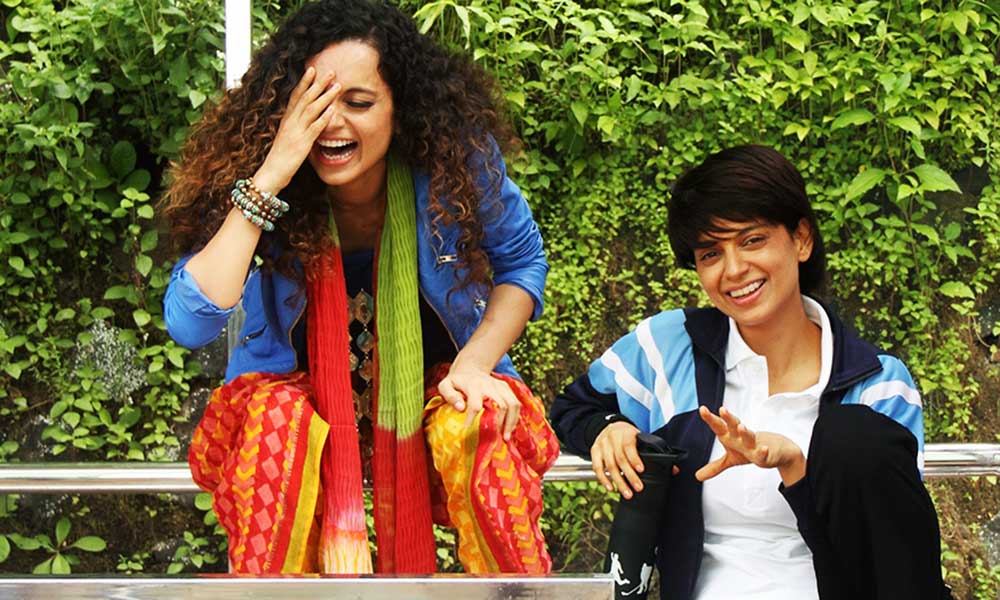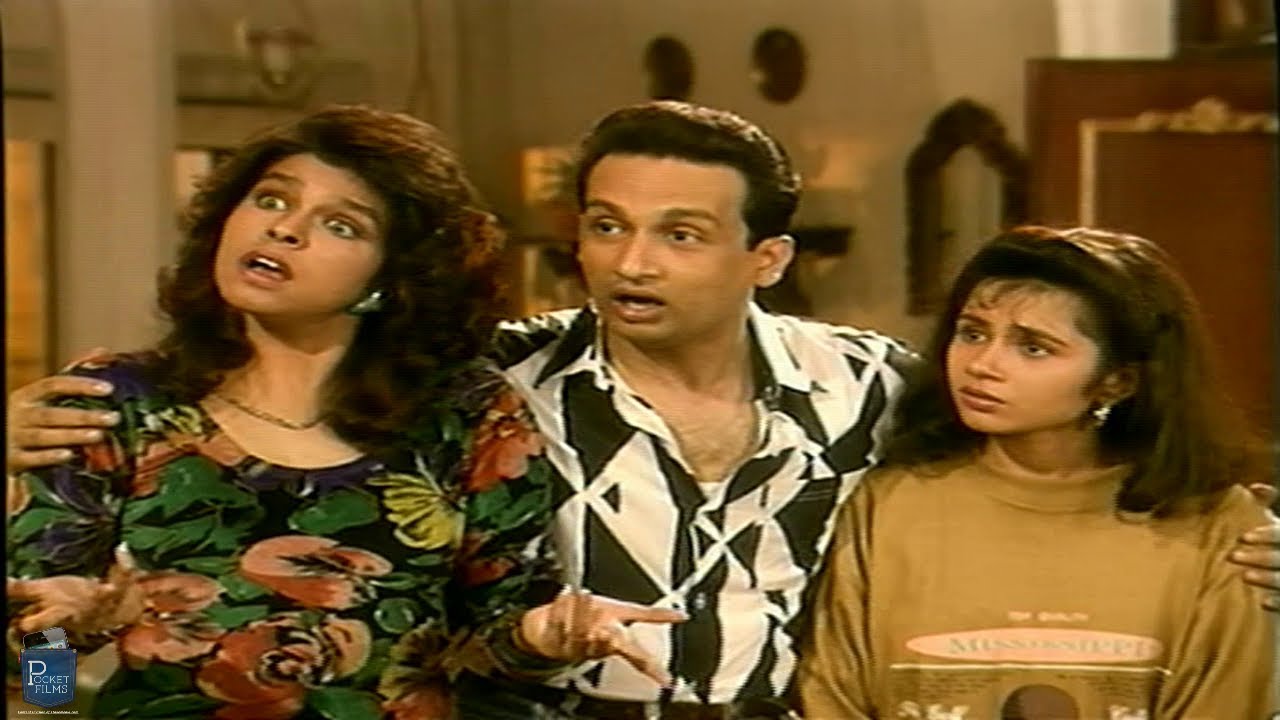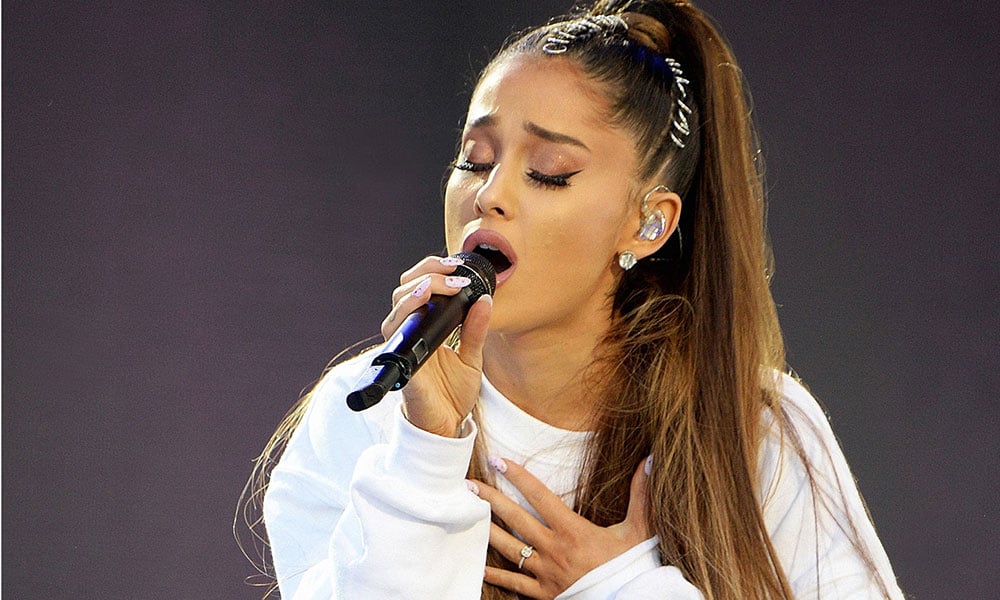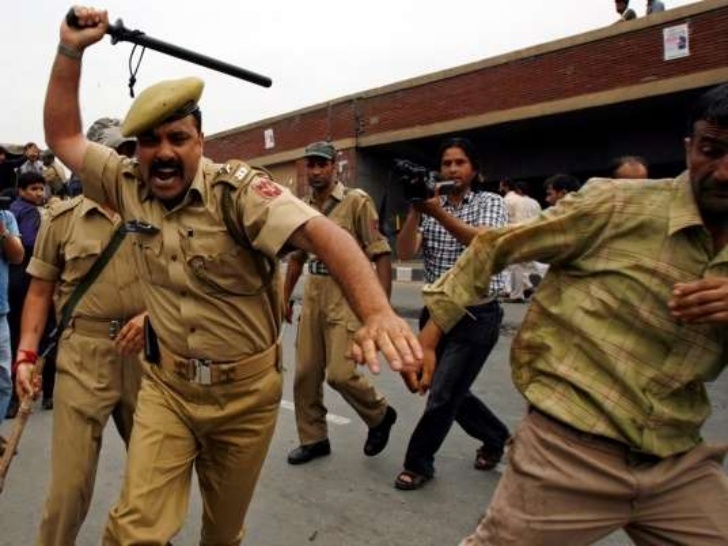Awestruck we are and floored absolutely at the antics of an utterly liberated Tanu, when she proudly exclaims “Wah Sharma Ji, hum zara sa bewafa kya huye, aap to badchalan ho gaye!”
Sadly enough, we missed the out and loud faux feminism poured out of this neatly etched character who clearly is not the real thing!
Why such outspoken pretensions, in the name of woman liberation, and the acceptance , and applaud and idealisation of such woman characters who are nothing but frames?
Just because they belong to hit movies?
Tanu, quite vividly, as from the prequel Tanu Weds Manu, is a consumer of cheap alcohol in Kanpur, who now in Tanu Weds Manu Returns, gulps down a large quantity of red wine and beer in London and so, because she is an independent, liberated woman who doesn’t feel it’s her job to cook for her husband or to please him in bed, and don’t need his permission to drink either.
See, how liberated she is!
In fact, she doesn’t really need her husband and very conveniently makes way for him to be admitted to a mental asylum!
The surprising thing is that cigarettes are missing this time, as compared to the previous version, which clearly seems the film certification problem being solved and nothing else!
Trapped in a sari and a mangalsutra, Tanu flirts with men, in her hometown and feels free to do so, just because her husband is not around!
Filling up the blank?
Now, my question is, why is Tanu a smashing hit amongst us?
A woman of her attitude, drinking, smoking, sleeping around, not respecting her marriage, her husband, flirting with men while in a marriage and we applaud her!
No, I am not saying there is anything wrong with such liberation! To each their own!
All I am asking is, could we still applaud and idealise such a character if it was not a hit movie in the background, and the woman was our own next door neighbour?
Would we still say “BRAVO GIRL, YOU GO”.
Would we accept her and try to be like her?
Chances seem dim!
So basically, here is a woman with no interests, no hobbies and no ambition. A man without these would have been labelled a loser. But it appears that this is perfectly acceptable for women just because it’s Kangna Ranaut! And she can be all that!
Now, she appears at the marriage discussions of a younger sibling drunk on vodka, dressed in a towel. She uses her sexuality to order around the men in her life, reducing them to chauffeurs and errand boys. She walks alone, drunk, on deserted streets in the dead of the night in small town India.
When did all this become modernity? True modernity is hardly about how one dresses or what one drinks, but it is about how one behaves, recognising the arena! Liberation is not about pushing boundaries regardless of the consequences, but recognising that some boundaries will take a while to move, and respecting them, lest we hurt someone. A smart, modern Indian woman knows this. But Tanu doesn’t. I have only one explanation for this, the diagnosis Manu gives in the first scene of the film, that she is bipolar.
Tanu, is such an unreal, unlikable character, that in spite of her denial of the bipolar diagnosis, it is the most charitable explanation for her behaviour.
And we love Tanu! Don’t we?
Manu himself, in spite of his many positives, leaves much to be desired. In the first film he says yes to marrying a drunk, semi-conscious girl, with no idea of her personality. He has obviously chosen her for her pretty face. He makes the same mistake again, falling for a face. The same face. Suggesting that the only aspect of a woman with any worth is her physical appearance. All faux feminism goes down the drain here!
And as for the Datto, the state champ, all I can say is that she uses her fists far more than her brain. If violence is not the answer for a man, why is violence when used by a woman applauded?
Can Kangana be a heroine without being a Revolver Rani or a hard drinking, foul-mouthed caricature of the leading man?
Is it possible for Rani Mukherjee to be strong without being Mardaani?
Can Anushka rebel against the wrongs in the society without a cigarette in her mouth depicting her liberation?
Why is the modern cinema revolving around portraying women’s liberation and empowerment hanging on to the wine glasses, cuss words, cigarettes and free sex?
Are these regular, next door women, who bring up their families, who bear children, who cook day in day out, who respect their husbands, and love them for the rest of their lives not strong enough to be etched into movie characters? Aren’t they liberated?
Don’t we need families anymore?
Why do we want to be like these characters, and not like our neighbour who is everything but a Tanu, or Datto, or Mira for that matter?





